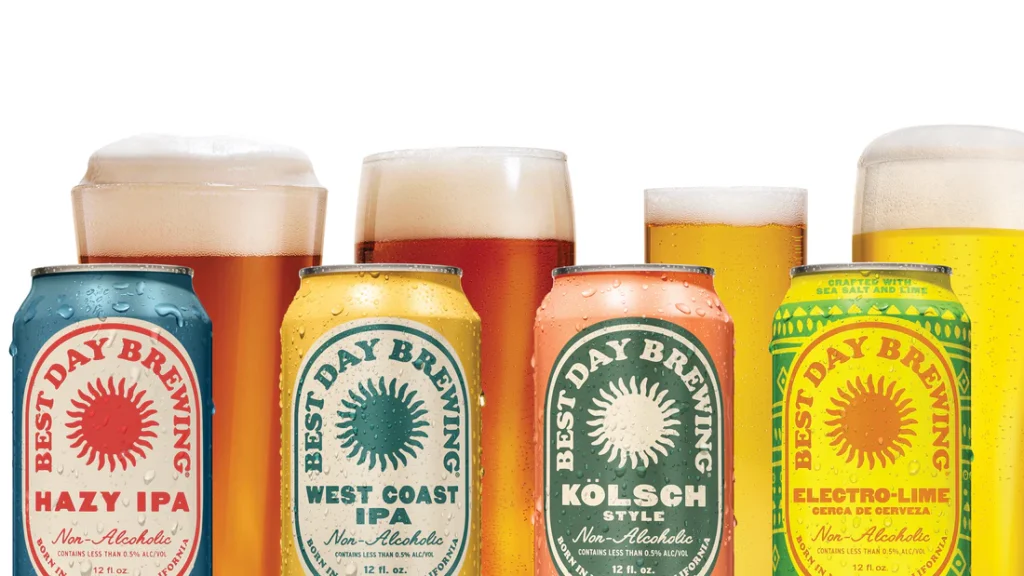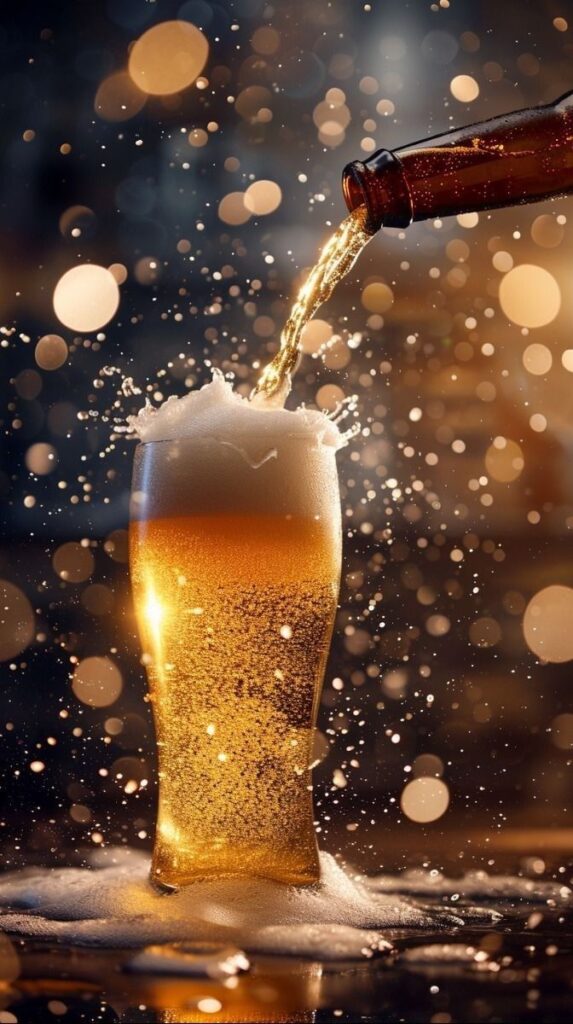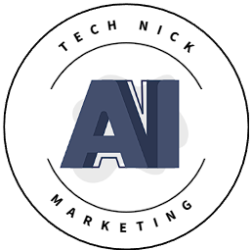🍺 The Rise of Days Beer: A Mindful Twist on a Classic Ritual For many, beer marks their first sip into the world of alcohol.

Recently though, the market has been bubbling with fruit beer alternatives beverages that resemble beer in look and feel but come with zero alcohol.
This shift has been largely fueled by younger consumers rethinking their relationship with alcohol, even as they continue reaching for a beer during social moments.
Enter Days Beer a UK-based alcohol-free beer company founded in 2020 by Mike Gammell and Duncan Keith.
Riding the Mindful Drinking Wave
At the heart of Days Beer lies a powerful cultural undercurrent: the mindful drinking movement.
Brewed in Scotland with locally sourced ingredients, Days doesn’t try to mimic beer by being watered-down it is beer, just without the alcohol or hangover.
The brand is built around guilt-free indulgence, offering the full experience taste, ritual, and vibe without any negative aftereffects.
So how did Days carve out a strong presence in a market dominated by old-school giants and skeptical consumers?
Let’s dive in.
Branding That Sticks The core insight behind Days: you shouldn’t have to choose between your health and having a beer.
Mike and Duncan set out to create a brand that delivers the full beer experience from the taste and ritual to the satisfaction without alcohol.
What makes them stand out is their authenticity. The founders made their own personalities a part of the brand from day one, giving it a human, relatable feel.
And there’s zero pretension here. Days isn’t trying to be a fancy craft beer, it’s just a smart, clean alternative that fits seamlessly into real lives.
Importantly, the brand isn’t just for sober folks or for “Dry January.” It’s designed to blend into everyday routines without disrupting them.
Psychology-Driven Positioning Where traditional alcohol brands promote escapism, Days flips the narrative it’s about enhancing your life.
They also walk the talk B-Corp certified, with 2% of profits donated to mental health initiatives through their “Days Duty” program.
Who’s Drinking Days?
Their main consumer base? Health-conscious Millennials and Gen Z.
These are people who read nutrition labels, track their steps, and are tuned into their mental well-being.
Many fall into the “sober curious” camp experimenting with reducing alcohol intake without giving it up completely.
You’ll also find athletes, creatives, wellness enthusiasts, and productivity-focused professionals in their tribe.
For some, it’s about improving sleep or avoiding the post-drink blues. For others, it’s about clarity and hitting personal milestones.
Days doesn’t preach sobriety it offers a smarter alternative, giving people room to explore their own reasons for cutting back, including that all-too-familiar “hangxiety.”
Facing the Competition
Days is up against names like Beneficial Beer, Nirvana Brewery, and Beavertown Brewery, along with industry giants like Northern Monk, and Heineken’s alcohol-free line.
Here’s how they stack up:
Aspect | Days Brewing | Competitors (e.g. Northern Monk) | Leaders (Heineken, AB InBev) |
Market Position | Fastest growing low/no-alcohol brand in the UK | Established low-alcohol products | Broad portfolio, global presence |
Growth Rate | 160% retail sales growth in 2024 | Lower growth rates | Stable growth, focused on volume |
Distribution | Major UK supermarkets + Majestic | Supermarkets & pubs | Extensive international distribution |
Marketing | Viral TikTok, witty OOH campaigns | Traditional & digital marketing | Massive budgets, broad reach |
Products | 0.0% Pale Ale & Lager with premium ingredients | Varied alcohol-free beers | Wide range with alcohol-free options |
Brand Values | B-Corp certified, mental health focus | Varies | CSR programs |
The Marketing Mix
Product:
Days founders spent a year refining a 0.0% alcohol beer using traditional methods. The final product uses premium barley and fresh water from the Lammermuir Hills. The flavor profiles include Pale Ale and Lager, both available in cans and bottles and yes, they fit into a pint glass, preserving the familiar ritual.
Price:
Days leans premium, focusing on value through quality and connection rather than undercutting competition. Pricing adjusts slightly by setting sharp but premium prices in supermarkets and online, a bit higher in pubs and bars.
Place:
Their omnichannel distribution includes their website, Amazon, and a subscription model with a 20% lifetime discount. They partner with Huboo for fulfillment and have strong retail visibility with Tesco, Ocado, and even Wagamama. Their Majestic Wine partnership (200+ stores) especially pushes their Pale Ale.
This smart retail network helped Days drive a 160% YoY sales increase in 2024.
Viral Content = Real Sales
Social Media
Days nailed TikTok.
Rather than just being there, they blended in while standing out with relatable content, authentic storytelling, and no salesy fluff.
They brought founders and employees into the spotlight, creating a human connection.
When the #TubeGirl trend exploded, Days asked followers if they wanted to see the founders do it. When they did, it blew up:
20M+ views
53K+ new followers
432% spike in website traffic
Best-ever sales week at Tesco
All from a single viral video.
OOH (Out-of-Home)
Dry January is prime time but highly competitive.
Days went all-in with 31 unique messages one for each day across taxis, buses, tube stops, and digital screens throughout the UK.
Their central message?
“There are loads of reasons not to drink alcohol, but no reason not to drink beer.”
Emily Jeffery-Barret, Co-Founder, Among Equals
Final Thoughts: Why Days Wins
Days isn’t just selling a product, it’s selling a mindset.
In a category long ruled by legacy names and booze-fueled rituals, they’ve carved out a new path one powered by empathy, cultural awareness, and some seriously clever marketing.
Key Takeaways (Screenshot This!)
Lean into cultural shifts, not just demographics
Build authenticity by spotlighting your team
Jump on viral trends fast (hello, TikTok!)
Position the product around life moments, not just parties
Sell satisfaction, not sobriety


